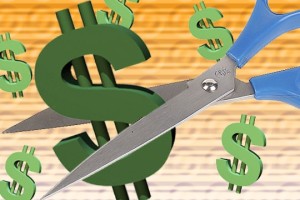Choosing the best retirement plan for a secure future
 A financially secure future is what most of us are constantly working towards. We set a portion of our funds aside for a safe future, invest in 401(k) plans, set up IRA accounts and try investing in sound retirement plans based on part research, part hearsay. Choosing a safe investment vehicle is a matter most people lose their sleep over. Does a 401(k) plan carry interesting tax benefits? Does an IRA account effectively maximize your money? Are bonds a sounder investment option than stocks? These are some questions that might occur to you while trying to choose an optimum retirement plan, which keeps your future out of harm’s way.
A financially secure future is what most of us are constantly working towards. We set a portion of our funds aside for a safe future, invest in 401(k) plans, set up IRA accounts and try investing in sound retirement plans based on part research, part hearsay. Choosing a safe investment vehicle is a matter most people lose their sleep over. Does a 401(k) plan carry interesting tax benefits? Does an IRA account effectively maximize your money? Are bonds a sounder investment option than stocks? These are some questions that might occur to you while trying to choose an optimum retirement plan, which keeps your future out of harm’s way.
The fundamental solution to a retirement plan problem is the understanding of tax benefits and returns that each investment plan offers. The 401(k) plan and the IRA (individual retirement account) are tax free investment options where you don’t have to pay taxes on the money invested or the interest unless you begin receiving benefits. As contributing to these accounts leads to a decrease in your taxable income, you pay lesser taxes overall. However, both methods are fundamentally different from each other and need careful research before they you take a decision.
While the 401(k) plan is set up by your employer, an IRA is an individual choice. The 401(k) plan will allocate similar distributions to employees, while an IRA leaves you with a lot of options as far as investment vehicles go. The 401(k) plan gives you the option of withdrawing money during an emergency; other than reducing your net taxable income. However, when you start to withdraw money from your account, the amount will be taxed as additional income. Also, there are penalties for premature withdrawal.
The IRA comes with its own pros and cons. You don’t need any help from a financial planner as the account is easy to set up. It also gives you a lot of freedom in choosing investment options like bonds, stocks or mutual funds. However, it imposes penalties on premature withdrawal and has a low contribution rate.
Through a 401(k) or an IRA account, you could invest your money in a number of things such as bonds, mutual funds, stocks, real estate and so on. Each profile has a unique risk to returns ratio that must be studied before choosing to invest in. The stock market has always been an enigmatic and unassailable investment option to most. With a high risk and an even higher reward associated with it, a stock portfolio could potentially take your investments to new heights. Bonds do not carry the high risk that stocks do, but neither do they offer promising returns on investment.
Choosing the best plan would require extensive research and an understanding of your financial requirements. Investing in both, IRA and a 410(k) could well be a sound diversification strategy, according to some professionals. Other new age IRA plans like investing in commercial real estate could also be the key to an assured future. Seek expert advice before going for any option available to you.
When retirement finally happens, a retirement plan could be your knight in shining armour. A careful approach towards choosing a sound plan will go a long way in ensuring financial security.
















